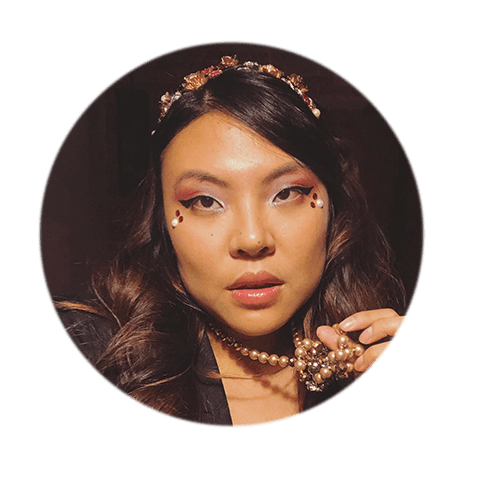Welcome to our "Get to Know the CCSN' blog series, where we introduce you to our core members in a little more detail, exploring their thoughts on the hottest internet trends. This month we're tapping into political memes and discovering how they found their ways into their unique fields of research. Is Kamala really BRAT? Can you turn a head of state into a meme? Why are pro-democrats suddenly shitposting?—and discovering how they found their way into their unique fields of research. This post is your go-to guide for connecting with CCSN members who can help you shine a light on specific trends, as well as a peek into what fuels their academic passions.
“Is it ever really ‘joever’?”
“In an article for Vice, Onion editor Joe Garden expressed regret over his part in ‘memeifying’ Joe Biden into a bumbling, softened, blue-collar ‘goofy Joe,’ a caricature that bore little resemblance to the real person who holds such power over millions of lives. This article was published in 2019!” writesChristine Tran, Assistant Teaching Professor in the Department of English & Drama at the University of Toronto Mississauga.
However, Christine argues that now, in 2024 and in the BRAT summer year of our Lord, many journalists and critics are quick to point out the power of visual and aural memes in the United States election: “Politics has long been a source of humour and content creation, far preceding this current moment. I caution against overstating the novelty of this trend or the social panics that arise when we suggest humorists and participatory cultures are wielding political influence,” she says.
So can we memefy Kamala Harris or not? Christine says: “If I could offer critical memers any tips as we delete our Dark Brandon jpegs to make room for more Brat Kamalas, it would be to keep our ‘historicize’ settings on and remember where we've seen, heard, and felt these trends before.”
Maybe Kamala Harris’ PRs are BRAT…
Dr Zari Taylor, a faculty fellow at New York University observing race, beauty and digital/pop culture, argues that “Vice President Harris’ campaign has leaned into digital culture in ways many other candidates have not, referencing the language and images of ‘chronically-online’ Gen Z voters who rely on social media to engage with candidates.”
Zari adds that Harris’ meme-ability exists against traditional images of Black women in politics – what, she argues, tend to be hard-working or stoic characteristics (i.e. the ‘strong Black woman’ trope). For Zari, memes are an effective PR and content strategy in the face of adversity: “Harris will presumably face a lot of racism and sexism during her attempt to win the 2024 election, and by playing into political memes it seems she plans to laugh her way into the White House,” she concludes.
Shitposting their way to the White House
Dr Jess Rauchberg, an Assistant Professor of Communication Technologies at Seton Hall University’s College of Human Development, Culture and Media, agrees and discusses the use of “shitposting” during the current US presidential race. She defines shitposting as “a crass and evocative style of memetic communication shaped by a platform's features that aims to derail and distract from mainstream conversations.” While this mode of sharing content can get a bad rep because of its association with the alt-right, Jess argues that all sorts of people shitpost as a playful method of political participation: “That’s what we've seen in the 2024 U.S. presidential election, such as the ‘Kamala is brat’ and Tim Walz memes.” She adds:
“Instead of reproducing hateful and politically divisive rhetoric, these recent political shitposts demonstrate how GenZ and younger voters are using memes to participate in larger political conversations. Ultimately, this is changing how we share information and understand political events--and who plays a role in these conversations.”
Memes, Neoliberalism and Media Literacy
In her research, Dr Krysten Stein, an Assistant Professor at the University of Cincinnati’s Blue Ash College focusing on social media, reality TV, representation and identity, has observed that “the democratisation of content creation on platforms like TikTok has empowered individuals to share their voices, but it has also introduced challenges related to credibility and misinformation.” She has found that “the pressure to create engaging content can sometimes lead creators to prioritise virality over accuracy, which has broader implications for how serious topics are understood and engaged with online.”
Krysten says that in significant world events like the US election, “social media's capacity to amplify short, often decontextualized clips poses a challenge to how we engage with complex political issues.” She adds that while these brief, attention-grabbing snippets tend to spread rapidly, appealing to our desire for quick, easily digestible content, their viral nature means that more nuanced, in-depth discussions are frequently overshadowed, leading to a simplified and sometimes distorted understanding of events. This, for Krysten, means there is “a critical need for heightened media literacy.”
However, the understanding of content is not the only issue at play: for Krysten, “much of the [political engagement] messaging on platforms like TikTok and in reality TV is rooted in neoliberal ideology, emphasising individual responsibility, self-improvement, and personal branding.” This focus on personal success stories and the idea that individuals can overcome any obstacle through hard work diverts attention from broader systemic, societal and structural problems, such as inequality and access to resources. “Recognizing and discussing these systemic issues is essential to fostering a more comprehensive and equitable approach to political engagement,” she concludes.
How did our CCSN members get here?

Christine Tran (@thechristinet) says they got into her research because they are “a serial spectator” and has always been fascinated by how watching, looking and viewing can be active forms of cultural participation. “My focus has been on how digital spectatorship creates both opportunities and obstacles for racialized and gendered creators, who have often been historically excluded from more visible roles in creative and cultural industries,” they adds. This interest naturally led to her current research on live streaming cultures, particularly on platforms like Twitch, Zoom, and social media services with video. Looking ahead, Christine looks forward to exploring the new modes of visible and invisible production that this work will uncover.

Dr Zari Taylor (@zaritaylor_), is a critical cultural studies scholar whose research focuses on the relationship between race, popular culture, and technology. She got into her field because she was “an undergraduate student who wanted to study ‘everything’” to make sense of what was going on around her, and in the elements of pop culture that she and her friends engaged with. “I believe that the ‘unserious’ things of life can tell us the most about societal norms and values and be wrapped up in sociopolitical issues and histories,” she says, adding that this led her to become interested in cultural studies and write a dissertation on creator culture, beauty, and race.

Dr Krysten Stein (@stein_krysten)’s journey into the field of popular culture research began with a lifelong fascination with the power of media to shape our understanding of the world. Growing up, she was particularly interested in how television represented various identities and how these portrayals could influence societal beliefs and behaviours. This early interest in media representations evolved into a deeper academic pursuit as she began to critically examine the intersections of media, culture, and communication. Now, Krysten’s focus sharpened on reality TV and digital platforms like TikTok, where issues of identity, representation, and the political economy of content production became central to her work. “These platforms not only reflect but also actively construct social realities, making the study of their influence more crucial than ever in our media-saturated society,” she says. By exploring these dynamics, her research aims to uncover how media contributes to the broader cultural and economic landscapes we navigate daily.

Dr Jess Rauchberg (@JessRauchberg)’s scholarship centers concerns of identity, visibility, and marginality in digital media, with a focus on influencers and creator cultures. Drawing from critical/cultural, feminist media, and critical disability approaches, Rauchberg’s work examines how offline oppressions and beliefs are reproduced within digital platform economies. Her interest in digital culture and memes was sparked by her earliest Internet "memories" about political culture, including the entertainment company JibJab's 2004 presidential election videos or AlbinoBlackSheep’sviral "End of the World" meme. She’se now working on a book project about shitposting and memetic cultural production on social media platforms.